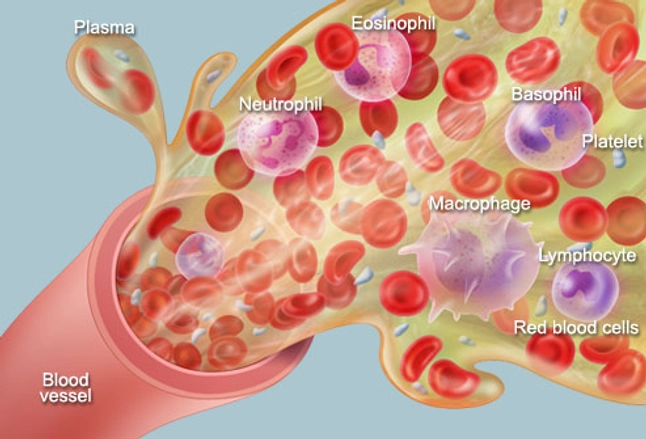Here is the Quizlet for blood cells

Blood is a constantly circulating fluid providing the body with nutrition, oxygen, and waste removal. Blood is mostly liquid, with numerous cells and proteins suspended in it, making blood "thicker" than pure water. The average person has about 5 liters (more than a gallon) of blood.
CONTINUE READING BELOW
A liquid called plasma makes up about half of the content of blood. Plasma contains proteins that help blood to clot, transport substances through the blood, and perform other functions. Blood plasma also contains glucose and other dissolved nutrients.
About half of blood volume is composed of blood cells:• Red blood cells, which carry oxygen to the tissues• White blood cells, which fight infections• Platelets, smaller cells that help blood to clot
Blood is conducted through blood vessels (arteries and veins). Blood is prevented from clotting in the blood vessels by their smoothness, and the finely tuned balance of clotting factors.
Blood Conditions
Hemorrhage (bleeding): Blood leaking out of blood vessels may be obvious, as from a wound penetrating the skin. Internal bleeding (such as into the intestines, or after a car accident) may not be immediately apparent.
Hematoma: A collection of blood inside the body tissues. Internal bleeding often causes a hematoma.
Leukemia: A form of blood cancer, in which white blood cells multiply abnormally and circulate through the blood. The abnormal white blood cells make getting sick from infections easier than normal.
Multiple myeloma: A form of blood cancer of plasma cells similar to leukemia. Anemia, kidney failure and high blood calcium levels are common in multiple myeloma.
Lymphoma: A form of blood cancer, in which white blood cells multiply abnormally inside lymph nodes and other tissues. The enlarging tissues, and disruption of blood's functions, can eventually cause organ failure.
Source: Web MD